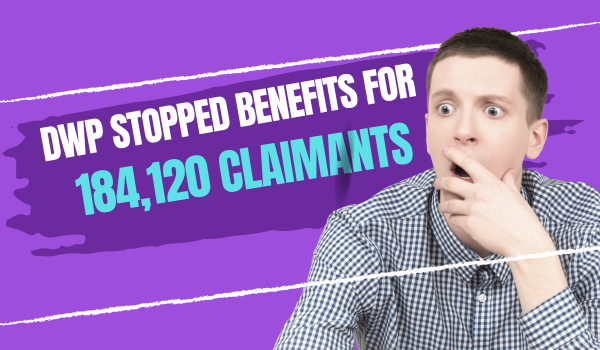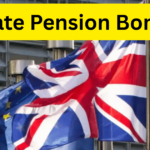Here are some of the latest updates on the DWP Stopped Benefits for 184,120 Claimants: Are You One of Them? What to do now? The Department for Work and Pensions has recently taken action affecting over 184,120 individuals by discontinuing their benefit payments due to their failure to transition from traditional benefits to Universal Credit within a specific timeframe.
DWP Stopped Benefits for 184,120 Claimants
The DWP’s move comes from a migration campaign aimed at merging various benefits under the Universal Credit Umbrella to modernize the welfare system in order to promote consistency in benefit distribution across the UK. The official has already sent a notice to all the benefits holders notifying them that they need to switch.
The affected individuals were recipients of traditional benefits such as Working Tax Credit, Child Tax Credit, Housing Benefit, Income Support, Income-based Jobseeker’s Allowance, and Income-related Employment and Support Allowance. These benefits have been terminated in favor of Universal Credit, which unites multiple forms of support into a single benefit.
Are You One of Them Who Is Affected By DWP’s Benefits Stoppage?
Despite DWP’s extensive efforts, including sending out over 800,000 migration notices since April 2025, nearly 184,120 did not complete the transition by the deadline extended from July 2022 to April 2025. The migration notice from the DWP instructs the recipients to switch to Universal Credit within three months of receiving the notification letter.

This involves creating a universal credit account and completing the claim procedure within 28 days of account creation. Failure to follow these timelines leads to delays in starting the process and interruption in benefit payments. Well, false claims of benefit are quite common in the UK, with research proposing approximately 140,000 reports are initiated each year.
What To Do Now?
For couples residing together, both partners must individually apply for Universal Credit if they meet the criteria of being married, civil partners or cohabiting. Each partner needs to create a separate account, with one getting a partner code to ease joint claims. The DWP stresses the importance of accurate reporting and abiding by a set of rules to avoid any potential penalties and legal consequences associated with fraud.
The application procedure requires various documents, including bank details, identification documents like a passport or driving license, payslips, and details of housing expenses, earnings, savings, or any disability or health condition affecting work. The shift from legacy benefits to Universal credit aims to simplify administration, alleviate dependency on multiple benefits systems and endure a more balanced approach to welfare provision.
DWP Stopped Benefits for 184,120 Claimants News
Besides the migration campaign, the DWP remains watchful against benefit fraud, which causes a significant financial burden and weakens the integrity of the welfare system. Recent statistics indicate rising overpayments due to fraud, highlighting the need for strict obedience measures. Benefit fraud typically involves scenarios such as falsely claiming unemployment benefits while employed, concealing income, or failing to report changes in circumstances like increased financial support.
When suspicion of fraud arises, the DWP initiates investigations that may involve contacting individuals directly, conducting interviews, gather evidence such as financial records, surveillance reports, and witness statements. Investigators focus on verifying eligibility requirements and detecting fraudulent activities that endanger the allocation of state funds meant for genuine beneficiaries.
All We Know
If you were notified to shift to Universal Credit through the migration notice, then you are requested to create a new account immediately to avoid any delay in your Government benefit payments. Here are some common instances of benefit fraud.
- Fake injury, disability, or illness to unjustifiably get the unemployment disability benefits.
- Hiding the actual earnings via employment or business to look more economically insecure and claim Government benefits.
- Reading with someone else who contributes to the household expenses without revealing the income to officials.
- One of the common tactics is creating alternate accounts to prove having less income and then claiming the benefits.
In such cases, the DWP will ask for evidence from each to determine if they are genuinely entitled or representing feigning to receive the benefits. To collect more information on DWP Benefits, tap on the link below.


